2023 has seen a surge in interest for THCA IndaCloud wellness shop (Tetrahydrocannabinolic Acid), a non-psychoactive compound in cannabis that’s legal in Massachusetts for both medical and recreational use. Unlike its decarboxylated form, THC, THCA is not psychoactive but is being explored for its potential health benefits, including anti-inflammatory and neuroprotective effects. The market in Massachusetts has responded with a variety of THCA-rich products, as consumers look beyond THC and CBD to explore the full spectrum of cannabis compounds. The state’s Cannabis Control Commission oversees the industry, ensuring compliance with regulations that include age restrictions, labeling mandates, and possession limits. In Massachusetts, THCA flowers are legal provided they contain less than 0.3% delta-9-THC on a dry weight basis. Consumers are advised to purchase from licensed dispensaries to ensure legality and safety. Additionally, proper storage is crucial for maintaining the quality of THCA flowers, with recommendations to keep them in a cool, dark place at room temperature, in an airtight container, to protect their integrity and potency over time. The focus on THCA as a subject of growing interest in Massachusetts underscores its potential benefits for wellness and medical applications, making it a key player in the evolving cannabis landscape.
Explore the nuances of THCA flower, a cannabinoid-rich botanical gaining prominence for its potential health benefits and psychoactive properties. As THCA legal status in Massachusetts continues to evolve, discerning consumers seek out top-tier THCA flowers within the state’s compliant market. This article delves into the essential aspects of THCA, from its legal standing and sourcing to the intricacies of decarboxylation and storage, ensuring you fully understand how to optimize its effects. Join us on a comprehensive journey through the world of THCA flower, where we’ll cover everything from its benefits to legal considerations, both within Massachusetts and across the nation. Whether you’re a novice or an experienced enthusiast, this guide offers valuable insights for responsibly engaging with THCA flower, enhancing your experience through informed dosage and strain selection, and understanding the science behind terpene profiles.
- Understanding THCA Flower: The Basics and Its Rise in Popularity
- THCA Legal Status in Massachusetts: A Compliance Overview
- Sourcing High-Quality THCA Flowers in Massachusetts
- The Benefits of THCA Flower: Effects and Potential Health Implications
- Storing and Preserving the Integrity of Your THCA Flowers
Understanding THCA Flower: The Basics and Its Rise in Popularity
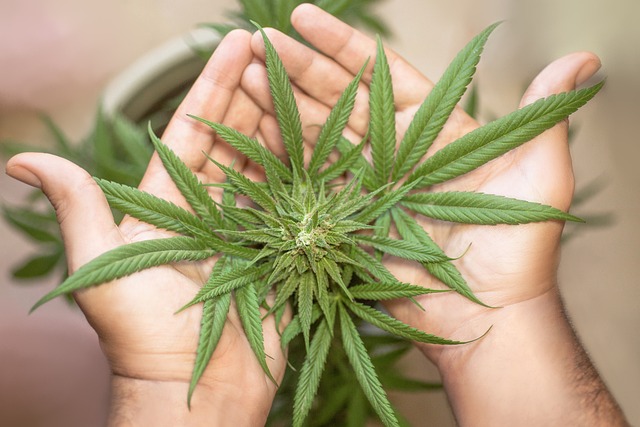
THCA, or Tetrahydrocannabinolic Acid, is a naturally-occurring compound found in the cannabis plant that has garnered attention for its potential therapeutic benefits. As research continues to evolve, so does the interest in cannabinoids beyond the well-known THC and CBD. In Massachusetts, where the use of cannabis products has been legalized for both medical and adult-use recreationally, THCA flower is gaining traction due to its unique properties. Unlike THC, which is the decarboxylated form of THCA, the acid form does not intoxicate users; however, it is being studied for its potential effects, including anti-inflammatory and neuroprotective qualities. The rise in popularity of THCA flower can be attributed to a growing demographic seeking alternative cannabinoids with specific health benefits and a clearer cognitive experience than traditional THC products. As this market segment expands, consumers in Massachusetts are increasingly exploring the diverse offerings of THCA-rich products, reflecting a broader interest in the full spectrum of cannabis’s compounds and their individual effects.
The surge in interest for THCA flower is also fueled by its versatility in consumption methods. In Massachusetts, where legal frameworks have been established to regulate cannabis use, THCA can be consumed in various forms, including smokable flowers, edibles, and concentrates. The ability to harness the benefits of THCA without immediate psychoactive effects makes it a desirable option for those looking to experiment with cannabinoids’ health-related properties. As awareness spreads and legal access becomes more streamlined, the demand for THCA flower is likely to persist, especially as users explore its potential applications in wellness and medicine.
THCA Legal Status in Massachusetts: A Compliance Overview
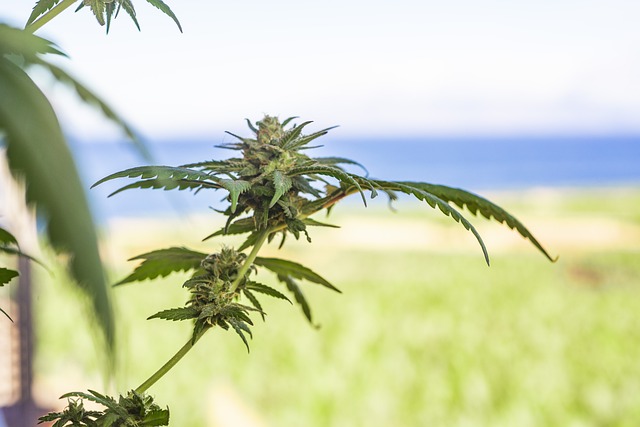
In Massachusetts, the legal status of THCA (Tetrahydrocannabinolic Acid), a non-psychoactive precursor to THC (Tetrahydrocannabinol), is subject to the state’s evolving cannabis regulations. As of the knowledge cutoff date in 2023, Massachusetts legalized medical marijuana through the Massachusetts Compassionate Medical Marijuana Initiative in 2012 and further decriminalized it in 2018 with the passage of Question 4, allowing adults to possess, transport, and use cannabis in a manner consistent with state regulations. THCA flower, which contains the acidic form of THC, is included under these legal frameworks provided the product adheres to the state’s licensed and regulated cannabis market. It is important for consumers to purchase THCA products from licensed dispensaries to ensure compliance with Massachusetts laws. The state’s Cannabis Control Commission (CCC) oversees all aspects of the cannabis industry, including the cultivation, processing, and sale of THCA flower, ensuring that it remains within legal boundaries set forth in state regulations. Consumers should be aware of these regulations to responsibly engage with THCA products in Massachusetts. Compliance with age restrictions, labeling requirements, and limits on possession are crucial for both retailers and users to avoid any potential legal issues associated with the use or distribution of cannabis-related substances.
Sourcing High-Quality THCA Flowers in Massachusetts
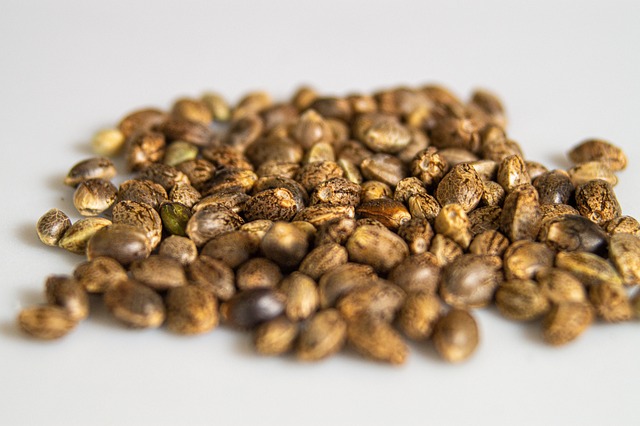
Massachusetts has emerged as a significant market for THCA flowers, with a plethora of options available for those looking to indulge in high-quality, legal cannabis products. As per the state’s regulations, THCA flowers are legal provided they contain less than 0.3% delta-9-tetrahydrocannabinol (THC) on a dry weight basis. This legality opens up avenues for consumers to source and enjoy these non-psychoactive, hemp-derived flowers that offer the therapeutic benefits of cannabis without the intoxicating effects.
When sourcing high-quality THCA flowers in Massachusetts, it’s crucial to seek out reputable suppliers who comply with state laws and provide lab-tested products for purity and potency assurance. Consumers should prioritize vendors that have a transparent cultivation and testing process, ensuring that the THCA flowers they purchase meet the necessary legal standards. Additionally, these flowers can be sourced from both in-state cultivators and those who specialize in hemp cultivation across the country. It’s advisable to research and read reviews about different brands or dispensaries to ensure a safe and enjoyable experience with THCA flowers that are compliant with Massachusetts law. By doing so, you can confidently enjoy the benefits of these unique cannabinoid-rich flowers while staying within the legal framework established by the state.
The Benefits of THCA Flower: Effects and Potential Health Implications
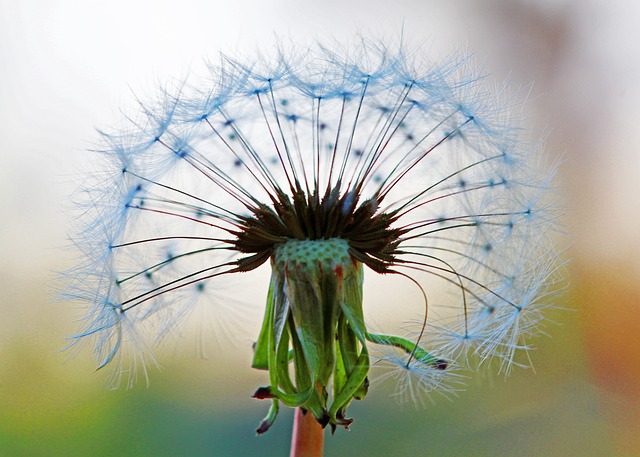
Delta-9 tetrahydrocannabinol (THC) is well-known for its psychoactive properties, but a non-psychoactive precursor, tetrahydrocannabinolic acid A (THCA), has garnered attention for its potential health benefits. THCA is found in raw cannabis or cannabis that has not been heated above 220°F (104°C). In Massachusetts, where the use of cannabis products, including THCA flower, is regulated and legal under state law, enthusiasts and researchers are exploring its effects. THCA is believed to have a range of therapeutic properties without the psychoactive ‘high’ associated with its decarboxylated form, THC. Preliminary studies suggest that THCA may offer anti-inflammatory, neuroprotective, and anxiolytic (anxiety-reducing) effects. It is also being researched for its potential to combat nausea and stimulate appetite, which could be beneficial for individuals undergoing chemotherapy or those with eating disorders. The legal landscape in Massachusetts allows for the exploration of these benefits within a controlled framework, providing opportunities for both medical and recreational users to experience and study THCA’s effects. As interest in cannabinoids continues to expand, the focus on THCA flower tips and its potential health implications is set to grow, offering a new dimension in the cannabis industry with its unique, non-psychoactive properties. Users and scientists alike are keen to understand more about how THCA can be utilized for wellness and what specific conditions it might alleviate or improve.
Storing and Preserving the Integrity of Your THCA Flowers
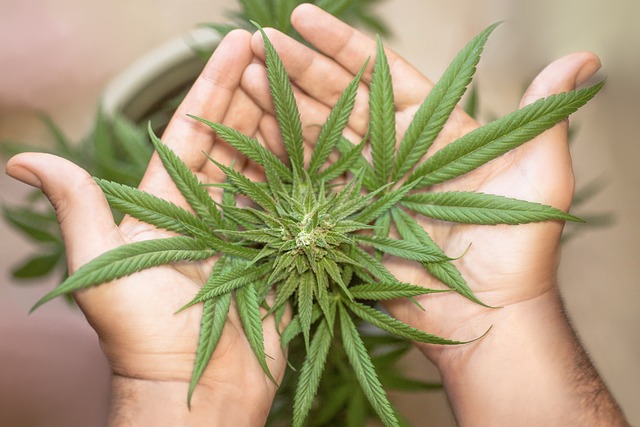
When it comes to preserving the integrity and potency of your THCA flowers, proper storage is paramount, especially given their legal status in Massachusetts. To maintain the quality of your THCA flowers, it’s crucial to store them in a cool, dark place that’s not exposed to direct sunlight or extreme temperatures. The ideal environment for THCA flower preservation is typically a room temperature setting with humidity levels kept between 59% and 63%. Avoid using refrigerators or freezers as they can sometimes introduce unwanted moisture or odors, which may affect the flavor and efficacy of your flowers. Additionally, ensure that your storage container is airtight to protect against airborne contaminants and to preserve the terpene profile that gives THCA its unique characteristics.
For long-term preservation, consider using vacuum-sealed mylar bags or glass containers with a tight-fitting lid. These containers not only block out light but also help regulate humidity levels and protect against pests. Regularly inspect your stored THCA flowers for any signs of degradation, such as discoloration or a loss of aroma. By adhering to these storage guidelines, you can ensure that your THCA flowers retain their potency and provide the desired effects for an extended period, in line with Massachusetts’ regulations on THCA flower possession and use.
In conclusion, THCA flower has carved out a niche within the cannabis landscape, particularly in Massachusetts where its legal status is clearly defined. As interest and demand for high-quality THCA flowers continue to rise, discerning consumers can confidently source these products while adhering to state regulations. Understanding the benefits of THCA, its effects, and potential health implications offers a comprehensive view for those considering its inclusion in their wellness routines. Proper storage is key to preserving the integrity of your THCA flowers, ensuring that you can enjoy their full potential. For those in Massachusetts looking to explore the world of THCA legality and use, this article has provided essential information to guide your journey responsibly and informed by the latest compliance standards.
